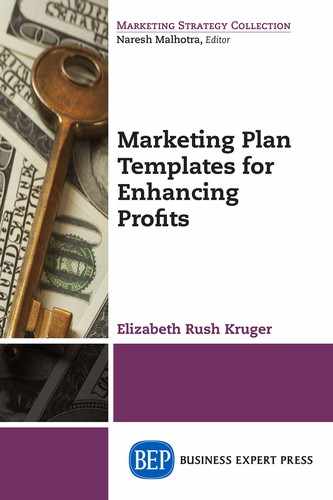Specialty: Compete on Strength
Overview
Aesop points out that everyone even disheartened college graduates “go further by using your own gift.”
Likewise, every business has a unique strength. School teaches you to correct your weaknesses, but a business succeeds by specializing in its strength.
Let’s discover how much further a business can go. The Pareto distribution predicts that the top 0.8 percent of skills will produce a 64-fold return. Learn how to identify the unique capability of a business.

Young college graduates1
Vignettes
A Youth Discovers His Destiny
A disheartened young man snoozes on a sofa, hugging his laptop. His girlfriend wakes him and she says, “What’s up?”
He whines, “Nothing and I’m going nowhere. I’m a college graduate, but no one wants to hire me—not even as a free intern. I’m rotting in my parent’s basement with no way to escape.”
His girlfriend interrupts his anguish. “My grandma wants to keep up with her grandchildren on Facebook. Will you teach her how to use Facebook?”
Brightening, he says, “Sure, I’ll be glad to teach her. Does your grandma have friends?”
“Grandma has lots of friends who are eager to learn Facebook. You were awesome at teaching Facebook to my friends. You’re blessed with this skill.”
“I’ll quit searching for a job and start a business. My destiny is to teach the older generation how to use Facebook.”
She says, “You’ll go far by using your strength.”
Was a Peacock Blessed?
An Aesop Fable
A peacock complains to Juno, a Greek goddess, “When I utter a sound, the other birds laugh at my ugly voice. I envy the nightingale’s song.”
Comforting him, the Greek goddess says, “Your neck flashes like an emerald and your tail is gorgeous. You’re blessed in beauty, not in song.”
“What good is beauty when my voice is so ugly?”
“I blessed every bird with a unique destiny.” Juno chants, “The destiny of the nightingale is song, the eagle is strong, and so on.” With anger, she says, “You alone are dissatisfied with your blessing. If I were to give you a lovely voice, you would quickly find another reason to complain!”
Aesop warns against jealousy. “You go further by using your own gift.”
Is Every Business Blessed?
Will a Business Go Further by Using Its Own Gift?
Every businessperson has a unique strength. For example, Mark Zuckerberg’s skill at website portfolios led to Facebook, Jeff Bezos’ skill at Internet marketing led to Amazon.com, and Steve Jobs’ skill at product design led to Apple.
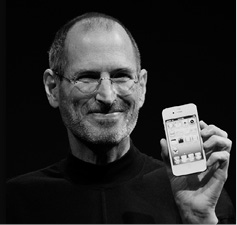
Steven Jobs2
Have the courage to follow your heart and intuition.
Steven [Paul] Jobs, a father of the Digital Revolution, cofounder of Apple, Inc. and Pixar, founder of NeXT Inc., 1955–2011.
What Are My Weaknesses?
For several years, I managed projects for various marketing research providers. After a few months of employment, each company would abruptly fire me. What was going on?
Marketing researchers excel at reporting facts, so I kept assuring myself, “Of course, I’m technical, practical, objective, and orderly.” I tried so hard to succeed as a marketing researcher that I no longer knew myself.
Then I identified my traits is with the Myers–Briggs Type Indicator. This personality test contrasts four sets of traits:
- Extraversion (E) versus introversion (I)
- Intuition (N) versus sensation (S)
- Thinking (T) versus feeling (F)
- Judging (J) versus perceiving (P).3
Its results surprised me. The test indicated that I am extraverted, intuitive, subjective, and spontaneous. I excel at solving problems, rather than reporting facts like a marketing researcher. Ops, I was specializing in my weaknesses, not in my strengths!
What Is My Strength?
Decades ago, I discovered my greatest strength at a singles dance. A stranger asked, “Why don’t you ask me to dance?” I said, “You are fourteen years younger than I am.” Surprised that I knew his age, he teased, “Do you also know my occupation?” I correctly guessed that the man was a computer analyst.
Astonished at my intuition, he walked me over to his friends. I guessed their ages. One was clearly a factory operative, but the other one confused me. “I can’t decide whether you are a manager or a mechanical engineer.” No wonder I was confused—he managed mechanical engineers.
Sometimes I guess information about passengers on planes. For example, I correctly deduced one was 28 years old, an expert in computer systems, and an employee of Arthur Anderson Consulting.
“Now I’ll guess what you do for fun.” After a lengthy pause, I concluded, “You do nothing for fun. You just track your investments on the Internet.” He cringed.

Benjamin Franklin4
A successful man is a “Jack of all trades, but master of one.”
Benjamin Franklin, a founding father of the United States, 1706–1790.
Who Are Child Prodigies?
Successful entrepreneurs specialize in their strength, often starting quite early. For example, Karl Benz graduated in mechanical engineering at the age of 19, designed the first automobile with an internal combustion engine, and cofounded the predecessor of Mercedes-Benz at the age of 29.5
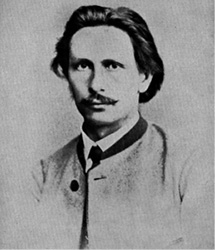
Karl Benz6
I taught a child prodigy named Kenny. His mom signed him up for Suzuki violin lessons. With misgivings, I measured him for a tiny violin. During his lessons, I would chase him around the room on my knees. Kenny learned quickly and led the other students during our group lessons. Kenny and his family moved away soon after he turned three.

Juaquin Trumpet7
I sit near to Juaquin Trumpet in the Daytona State College, Orchestra. He started teaching himself to play the violin when he was 12 and continued without instruction for many years. When he was a freshman, experts judged Juaquin to be the best string player enrolled in a state college in Florida.8 Juaquin would delight us with a spontaneous rendition of Henryk Wieniawski’s Scherzo-Tarantelle, Op 16. Juaquin confided to me that he aspires to writing sound tracks for movies.
Should You Be a Jack of All Trades?
What Not to Do
One morning, I taught my marketing students that a business profits by specializing in its strength. Then I rushed home to supervise an old man who was installing tiles on my porch.
I wondered why he was still earning minimum wage at his age. He answered my unspoken question when he asked, “Do you want me to install cabinets, add crown molding, or paint walls? I can do anything.”
This meant he could do nothing well enough to earn more money. With concern, I inspected the quality of his work. Sure enough, the tiles were not level. His work was only worth minimum wage.
How Much Further Can a Business Go?
Let us apply the 80/20 rule to the skills of a business. You realize that the top 20 percent of its skills will produce 80 percent of its profits. Let’s discover how much further business skills can go with higher layers of the 80/20 rule (Figures 3.1 and 3.2 and Table 3.1).9
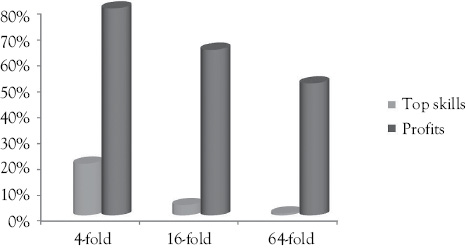
Figure 3.1 Layers of skills
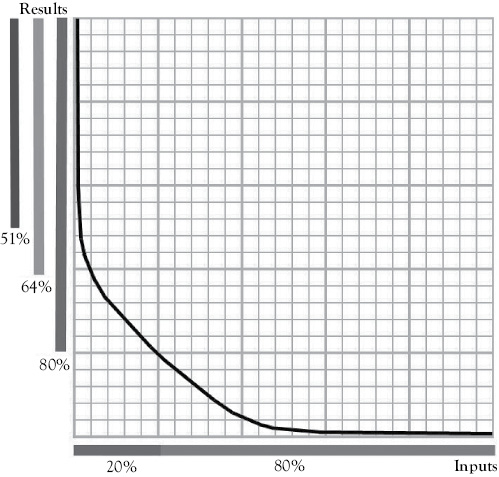
Figure 3.2 Layers of results
Table 3.1 Layers of skills
|
Layer |
Top skills |
Profits |
Return |
|
1 |
20% |
80% |
4-fold |
|
2 |
4% |
64% |
16-fold |
|
3 |
0.8% |
51% |
64-fold |
How Valuable Is a Strength?
Unique Strength
Aesop said, “You go further by using your own gift,” and the Pareto distribution proved that Aesop was right!
Every business has a unique capability. Ideally, its target market perceives this unique capability links to a benefit—a benefit that is important, specific, promotable, and sustainable.
A unique capability is sustainable if competitors are barred from entering a market. Possible barriers are a regulation, channel captain, celebrity endorsement, patent, new technology, scarce material, switching cost or the economies of scale, cost of equipment, or loyalty of customers.
Many businesses offer similar products and services, use similar technologies, and target similar customers. But what makes the business unique? Analyze its competitors. Don’t try to fit the mold, match the ratios, or duplicate best practices. A business succeeds by being as unique as a snowflake. When a business specializes in its unique capability, the business will prosper.
Key #3 Compete on Strength
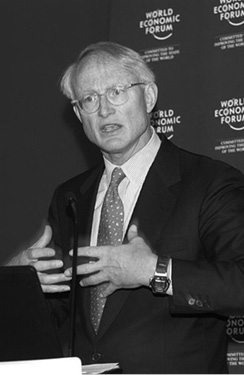
Michael Porter10
Strategy is about making choices, trade-offs; it’s about deliberately choosing to be different.
Michael [Eugene] Porter, Bishop William Lawrence University professor at the Institute for Strategy and Competitiveness, Harvard Business School.
Summary
The Pareto distribution predicts that the top 0.8 percent of its skills will produce a 64-fold return.
A business succeeds by doing what comes easily and being as unique as a snowflake. When a business specializes in its unique capability, the business will prosper. The third key to enhancing profits is to specialize in strength.
 Specialize in the Unique Strength of the Business
Specialize in the Unique Strength of the Business
Let Us Discover Its Unique Strength
Which way does the business compete: high quality, low prices, or relationships with customers?
- High quality
How does the business achieve its high quality?
□ Design and innovation
□ Quality materials and services
□ Reputation
- Low prices
How does the business achieve its low prices?
□ Efficiency
□ Relationships with customers
□ Less overhead
□ Low-cost suppliers
- Relationships with customers
How does the business achieve relationships with customers?
□ Brand identity
□ Custom products and services
□ Empathy with customers
Ask key customers, distributors, and suppliers this question, “Why are competitors envious of my business?”
Some responses will not resonate with you, but when a response does resonate, you have identified the unique strength of the business. Specialize in this strength—it’s the competitive advantage of the business.
Decide how the business will compete on strength:
